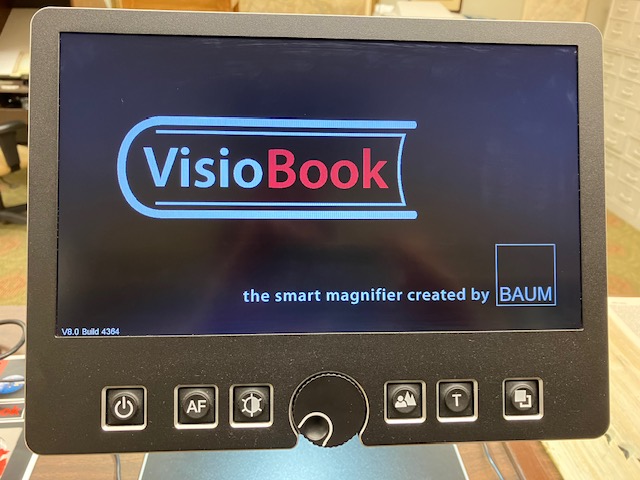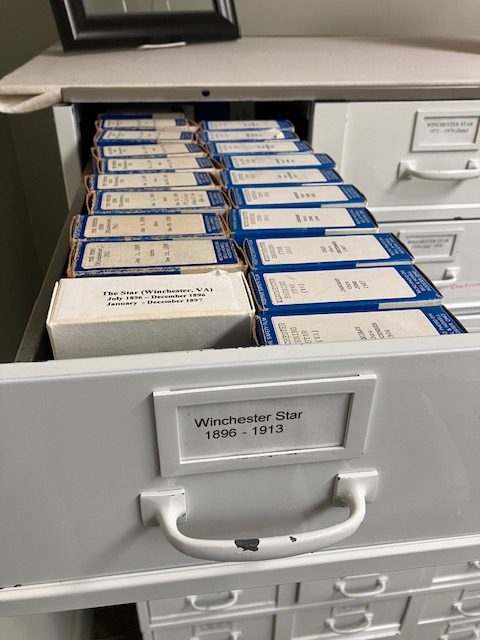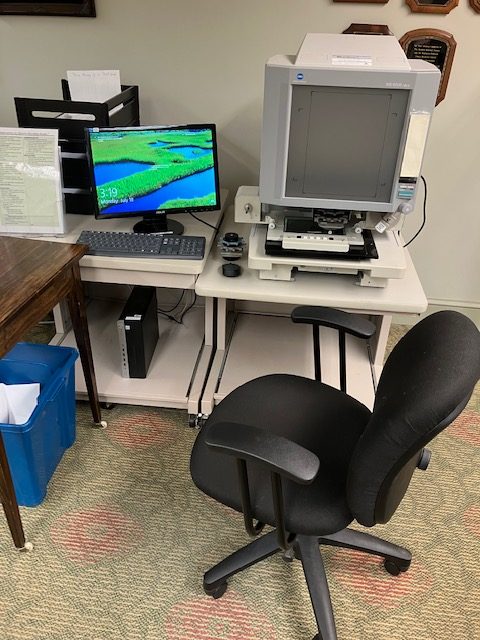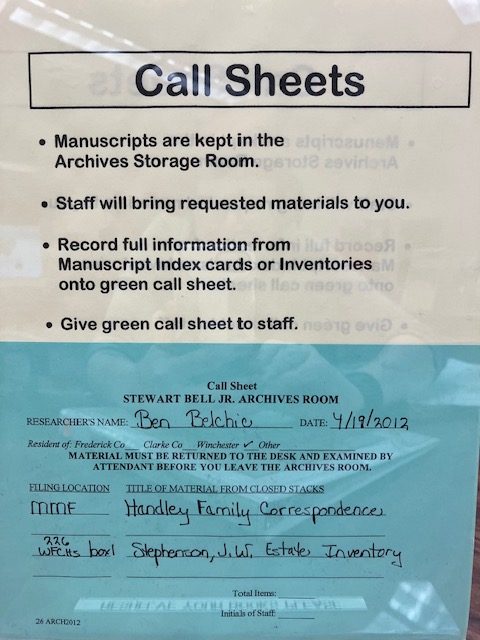Digital Access/Services
https://www.handleyregional.org/archives
The Stewart Bell Jr. Archives is a local history and genealogy center jointly operated by the Handley Regional Library and the Winchester-Frederick County Historical Society. Holdings include a variety of materials documenting the history of the Lower Shenandoah Valley from 1732 to the present, with an emphasis on the City of Winchester and Frederick County, Virginia.
From the Archives website, you can access the genealogy and history databases, digital collections, photograph collection, and manuscript collection. You can also access indexes (newspapers and yearbooks) and pathfinders (land records, death records, historic buildings, Civil War items). Additionally, you can explore a river of non-circulating historical and genealogical titles.
The website indicates several services that are available. Archives can provide 15 minutes of free genealogical or historical research for patrons who are unable to visit in person. For more in-depth inquiries, a researcher may pay staff $20.00 per hour for up to two hours of research. The Archives can perform obituary searches of local newspapers for a fee of $5.00 per name searched. Both of these services can be requested by filling out an on-line request form. There is a reproduction service for patrons requesting physical or digital copies of archives materials, also made available through an online request form. The website also links to a list of genealogists for hire. The Archives has a blog, and there are lots of great videos and podcasts – topics include tips and tutorials for researchers on how to search the databases, interviews with guest archivists, exhibits, and activities.
The website is very easy to use. Names of staff are not on the website, but there are very thorough and clear instructions about how to contact the Archives and how to plan your visit. For example, it indicates what equipment is available, what to bring, where to stay in town, and that there is no parking lot. This is especially important as many researchers travel here from out of town (and even out of state) to do research.
The Physical Space
The Stewart Bell Jr. Archives is housed in the lower floor of the Handley Library, a stunning beaux arts building built in 1910. One could easily imagine archival activity happening in this beautiful, historic building. The Handley library does not have a parking lot, but there is a parking garage a block away and both metered and non-metered street parking. One entire side of the building is a wheelchair-accessible ramp. Once inside the building, a patron would need to be directed to the elevator by a staff member, as there is no signage for the Archives on the outside of the building or immediately inside the rotunda. One accessibility aspect I note is that although the main door to the library is automatic, the door to the Archives is not – a researcher in a wheelchair may need assistance opening this door.
The Archives has two rooms – a research room where patrons can access materials and do research, and a closed stacks room housing all the items that require staff assistance, as well as the staff office. The research room has tables and chairs, OPAC computers, microfilm readers, scanner and copier, and a VisioBook smart magnifier for examining items as well as for those with vision impairment. There are shelves of bound items in the Dewey Decimal range 929 – 978. There are many drawered cupboards full of microfilm of local newspapers and court records. The research room is on the lower level of the library and has no windows – combined with its small size, the room feel a little closed in. However, everything is well-labelled, with instructions for researchers where needed. The space is decorated with local artifacts and historical photos.



Collections
The Archives houses local newspapers on microfilm dating back to the late 1700s. There are also court records. These are stored on microfilm, and researchers may retrieve, view, and make printouts from them. On the shelves there are many binders of parts of the collection that have been digitized. These are the result of the hard work of volunteers, who typed out these captured documents – and included their own research notes – so that they could be saved on flash drives. Toby – the Archives assistant I spoke with – says that she did a lot of work to make sure that these binders are very easy for researchers to work with, and the instructions are “foolproof.” The closed stacks room houses a wide variety of items – photographs, ephemera, maps, manuscripts, and rare books. Researchers may request these items by filling out a call sheet (pictured below), and staff will retrieve the item. Some of the items require gloves to handle (I note with a grin that Toby referred to these items as “glove stuff”). The lower floor of the Library (where Archives is housed) has several display cases for collections of themed items that change roughly quarterly.

People
The Archives has two full-time archivists, one part-time archival assistant, and several volunteers. Some of the volunteers have been working for the Archives for decades, and have been integral in the digitizing of the collection. The head Archivist, Becky Ebert, specializes in the history of the northern Shenandoah Valley, with a focus on the black community and bringing light to their forgotten histories. Her study, A Window on the Valley: A Study of the Free Black Community of Winchester and Frederick County, Virginia, 1785 – 1860, was the first on the free black community of this area (Ebert, 1983). She continues to highlight these stories through her work with the Winchester-Frederick County Historical Society. Her work brings much-needed diversity to the wealth of local history that is dominated by white stories. Researchers are more likely to engage in what Rubin and Rubin call “lookup” searching behavior – where they are searching for specific facts (Rubin & Rubin, 2020, p. 495). Toby said that about 25% of researchers are already familiar with the collection, and know what to ask for. Others may have a more general question like “I’d like to know more about the ________ family,” which merits a patron interview and some instruction on how to search the databases.
Impressions
The Archives is extremely robust – this has always been evident to me by the numbers of people who travel to do research here. The staff and volunteers are very enthusiastic and dedicated. During my visit there were three other people in the research room – a woman viewing a newspaper microfilm to make a copy of an article, and two younger people who were doing research on the Winchester Tire Fire of 1983. I was able to witness them requesting items from the closed stacks, and the items being retrieved by Toby, who was very helpful and informative, with a gentle and focused demeanor. While the Archives feels tucked-away, any researcher who comes here will be met with a vast and lovingly stewarded collection, and devoted and knowledgeable staff with not only expertise, but also connections to the historical community in general.
Ebert, R. (1986). A Window on the Valley: A Study of the Free Black Community of Winchester and Frederick County, Virginia, 1785 – 1860. (DRUM DOI: https://doi.org/10.13016/M2W05M [History thesis, University of Maryland]). Digital Repository at the University of Maryland.
Rubin, R. E., & Rubin, R. G. (2020). Foundations of library and information science (5th ed.). ALA Neal-Schuman.
It is absolutely fascinating to me how many people are interested in doing extensive geneological research. This sounds like an amazing archive for people needing information from the Winchester/Frederick Co. area. Thanks for sharing!
I’ve never seen people being charged for in-depth research. I wonder if this is a result of someone spending too much time on one over-enthusiastic researcher. Archives is certainly quite a niche area of the libraries, but for those who know about it, recognize it as a wonderful resource of information, media, and collections. Nice work!
I think it’s amazing that the archives staff will provide 15 minutes of free online genealogical or historical research for patrons. Now that’s service. I wonder if many patrons take advantage of that service. I may have to take advantage of it:)
I agree with Constance. I hit a road block trying to trace my ancestry, and professional help could probably help me a lot. I’d love to use the service.
It sounds like they offer interesting and helpful services at this library. It is unfortunate that there is no parking lot, but it is good that it is listed on the website so people know ahead of time. That is great that the website provides so much information about what people should know about vising the library.